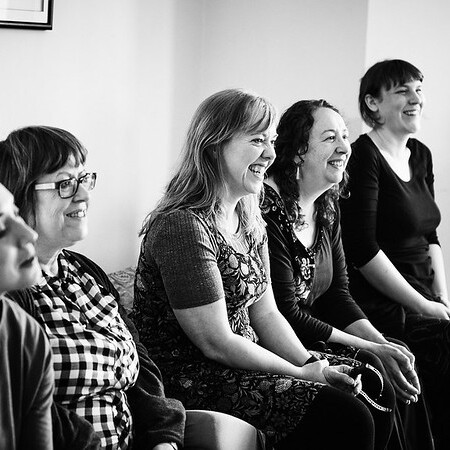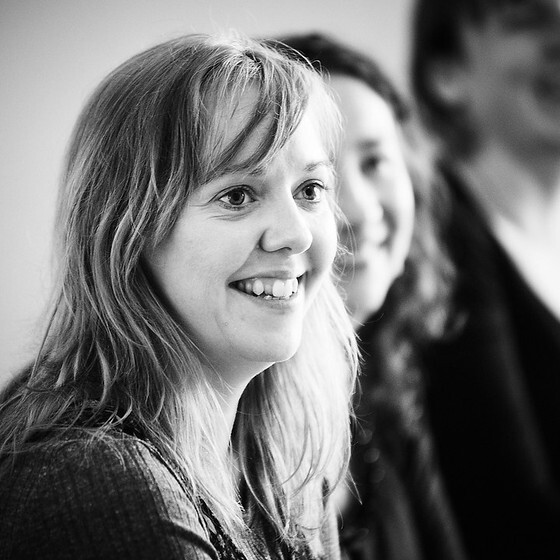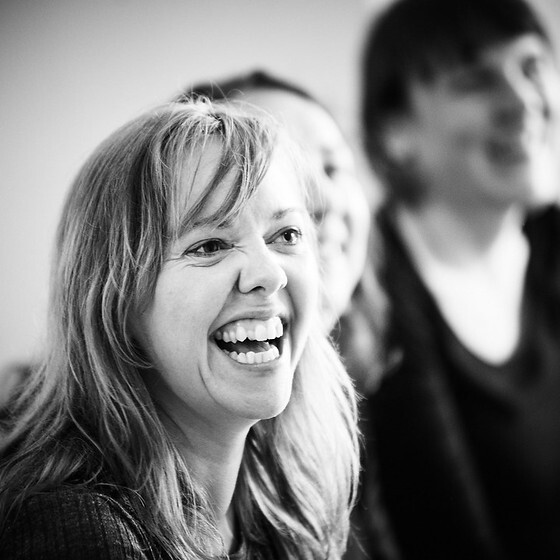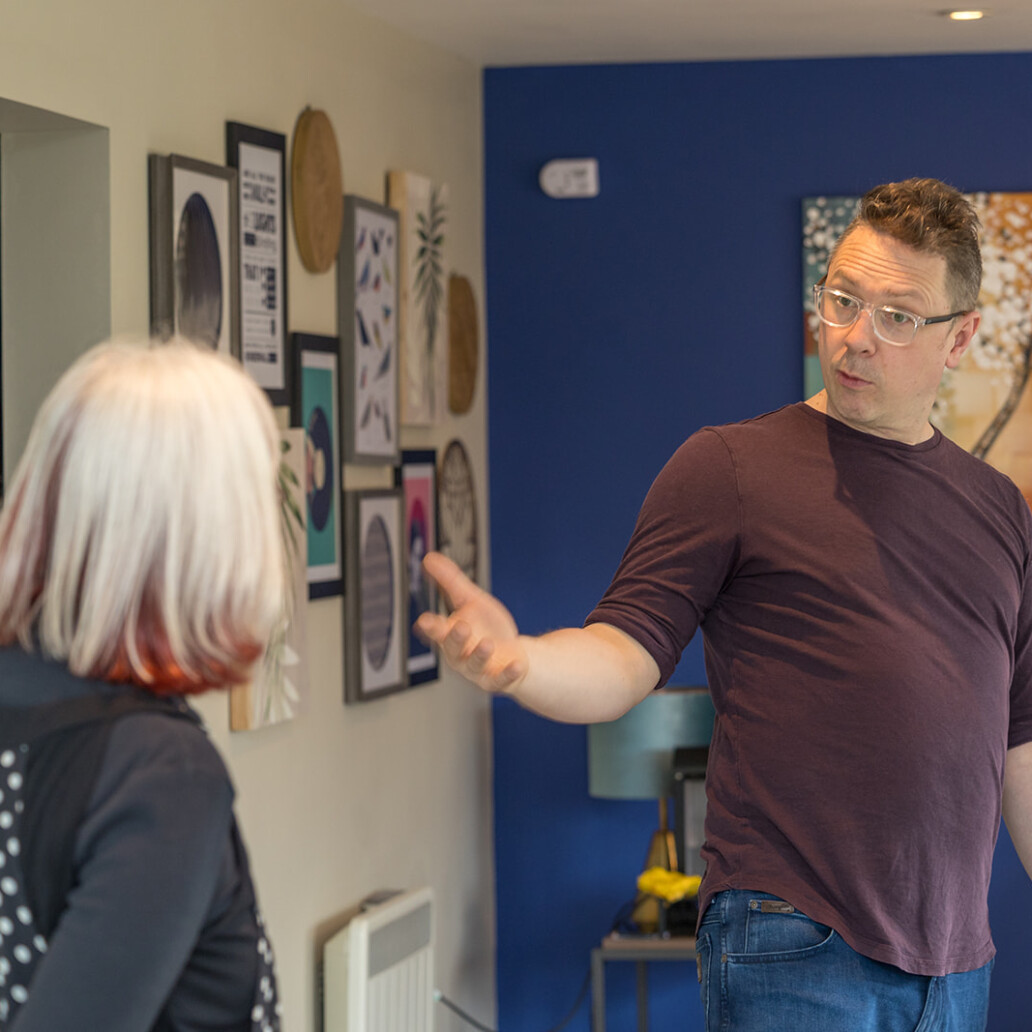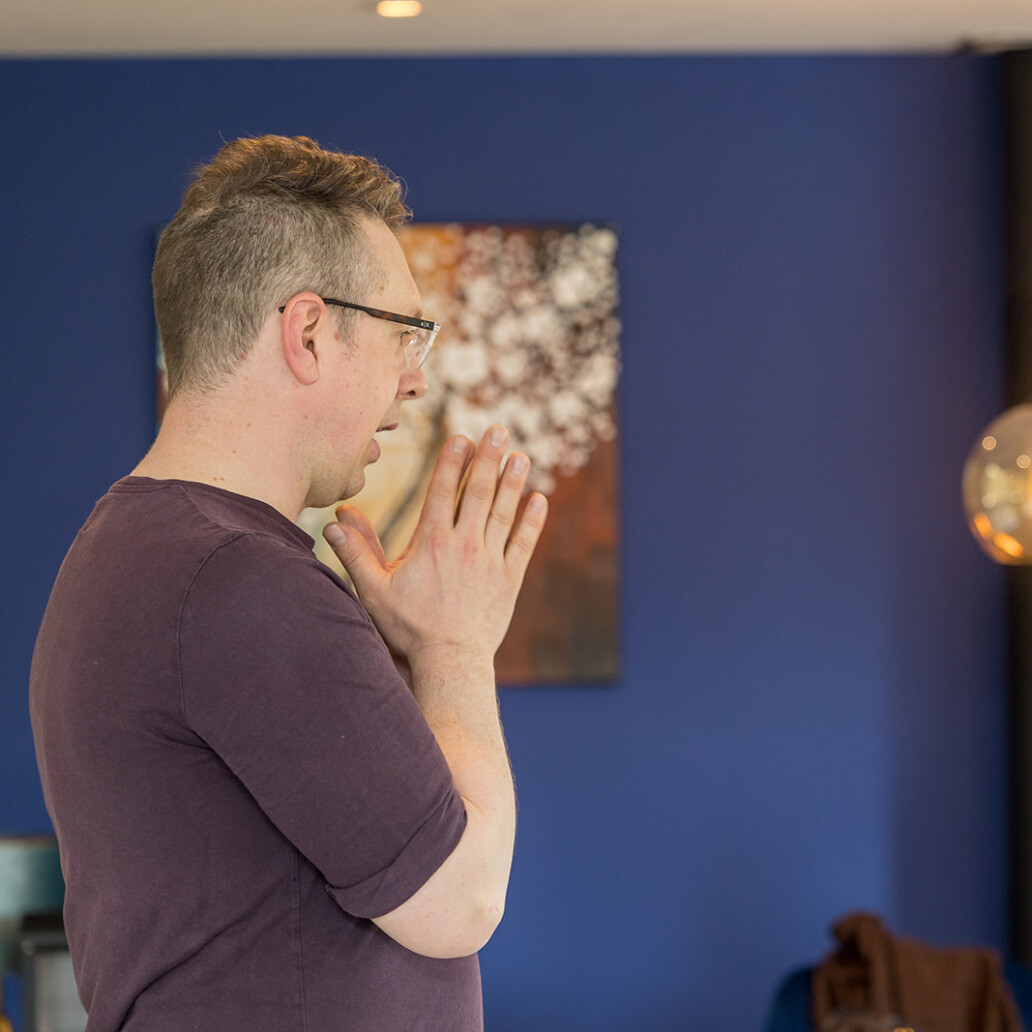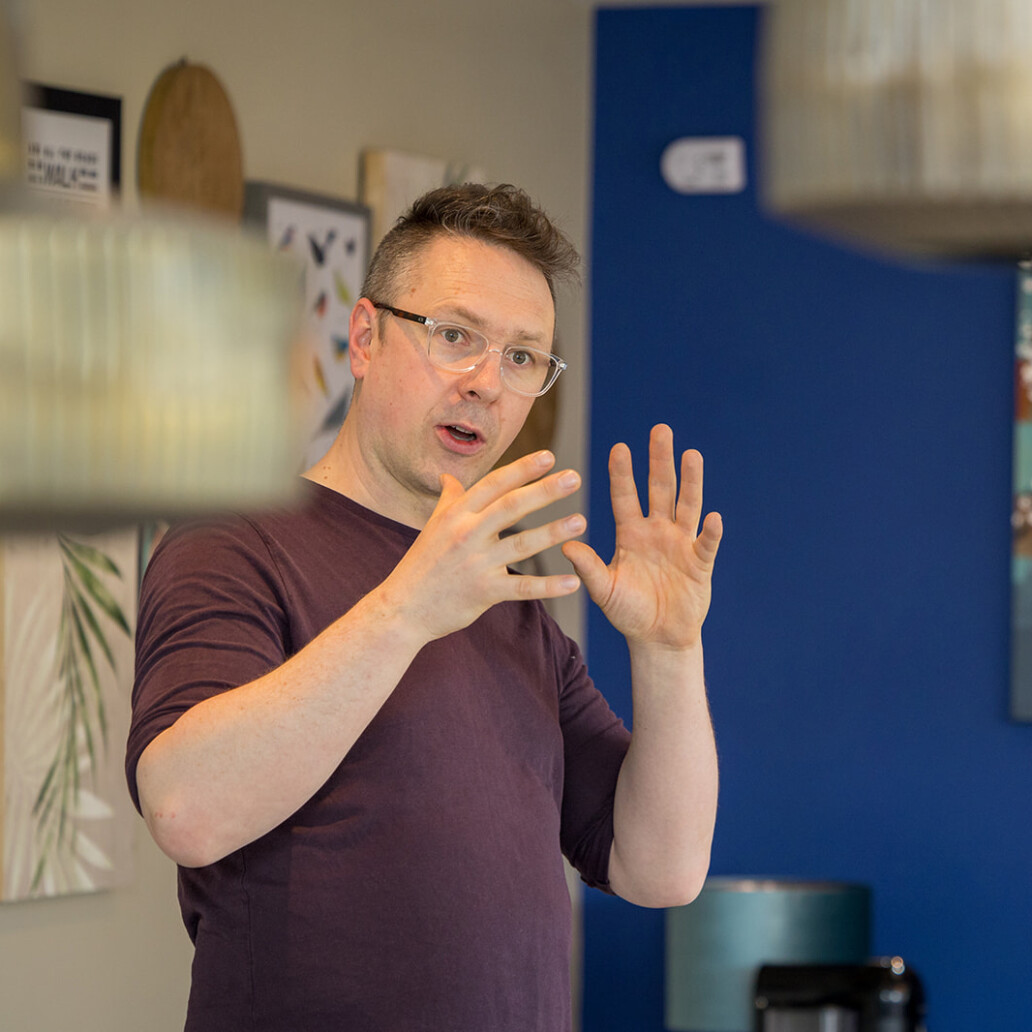Core Concepts of Workplace Improvisation
Improv is much more than the ability to react when something ‘goes wrong’. It is the idea that there isn’t really a wrong or a right. That if we are aware and responsive, both of where we are and where we want to be, planning and doing become two parts of the same whole, a loop of micro-feedback and response.
After all, life is improvised. We do not know what is going to happen from moment to moment, there is no script, the stories are unpredictable and the characters inconsistent. So just as you might meditate to experience acceptance and calm outside of your practice, we improvise to find charisma, flexibility, and boldness, to create agile teams, and learn how to work within them.
Having a sense of improvisation in your life helps you to avoid getting precious about expectations and plans. We become able to hold multiple possibilities in our heads and don’t force any of them to happen. This ability to improvise helps you to be in closer contact with the world and others in it. To accept what is there and, in doing so, learn to work with it.
Below are some of the core concepts of workplace improvisation that help us to make this happen.
